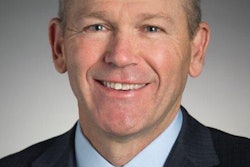
Somehow, though, this is often exactly what happens as the adult years take hold and responsibilities pile up like dirty dishes at an all-you-can-eat buffet. There’s a reason the adage Work to live, don’t live to work came into being.
Humans are notorious for allowing work to creep into their personal lives, resulting in increased rates of depression, anxiety, burnout and a host of other unsavory physiological and psychological health issues.
It’s one thing to be told a work-life balance is essential, but it’s another thing entirely to achieve it. If you find, like many others, that work has consistently made up the largest slice of the pie, it’s time to shave down that slice and reclaim your life while still reaping the rewards of your hard work. Easier said than done? Not necessarily. Here are three places to start.
Pass the baton (and refuse to feel guilty)
Delegation has somewhat of a reputation in business because pass the baton is often confused with pass the buck.
True delegation, the kind embraced and practiced by strong leaders, has nothing to do with evading responsibility and leaving others to “take one for the team” and everything to do with empowering others to use their unique experience and skill sets to complete tasks and spearhead initiatives.
When you mindfully delegate to your team members, keeping their strengths and areas of interest at the forefront, you demonstrate you trust them and are invested in their growth, both hallmarks of a healthy, thriving culture. Just as importantly, you free up your time to spend on things, both personal and professional, that add value.
Build fences (and resist moving them)
Many owners and managers struggle with protecting their time while ensuring they are still available to their teams.
Often, one prevails at the expense of the other, resulting in an imbalance that can throw entire organizations off-kilter. Proactively and clearly defining boundaries and setting limits – then refusing to compromise on those limits unless circumstances absolutely demand flexibility – eliminates confusion and communicates to your teams, customers and other stakeholders of the business that you prioritize balance.
Unapologetically set aside and schedule time each day to focus on your own to-do list to ensure when you are available to your teams, you are truly available.
Start with the big rocks (and trust the rest to fall into place)
Too often, people invest the lion’s share of their time and energy on things that make little impact over the long term in an effort to keep up with daily demands.
But thinking strategically and focusing on the big picture is vital for the long-term health of your business and your own physical and mental well-being. It seems counterproductive, but as the big-picture items – the “big rocks” – begin to make up the bulk of your days, you will find there is more than enough time for the day-to-day items, the pebbles and sand that fill in the cracks.
It helps to remember that it is impossible to do everything all the time and that doing what you reasonably can in a day is enough. And when you are tempted to worry about losing control by shifting your focus, it might help to know that scheduling time to worry can actually be beneficial.
Your business might be your biggest investment, but it doesn’t have to claim the biggest part of your days. The more intentionally you seek out, schedule, prioritize and protect time for your own personal and professional pursuits, the more you will be able to reclaim and restore that ever-elusive balance.
Your business will benefit, too. With a clearer head and a less cluttered calendar, you will be able to think more strategically and creatively, bringing back energy and vitality to your decision-making and your relationships with your teams, customers and other stakeholders. Andrew Wilkinson, founder of MetaLab, maybe put it best, saying, “You don’t have to make yourself miserable to be successful.”
EDITOR’S NOTE: This article was written by Don Evans. Evans is president of LandOpt and responsible for overseeing day-to-day operations and providing leadership by establishing and implementing long-range goals, strategies, plans and policies. He holds a bachelor’s degree in international affairs/economics from George Washington University and a Juris Doctorate from the University of Virginia.









